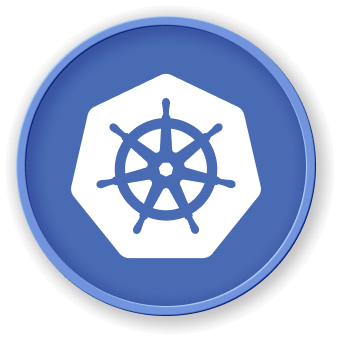Advanced Logging Practices
1. Centralized Logging Architecture
Logging Ecosystem Design
graph TD
A[Kubernetes Cluster] --> B[Log Collectors]
B --> C[Centralized Log Storage]
C --> D[Log Analysis Tools]
D --> E[Monitoring Dashboard]
Key Components
| Component |
Function |
Tools |
| Log Collection |
Gather logs from containers |
Fluentd, Filebeat |
| Log Storage |
Persistent log repository |
Elasticsearch, InfluxDB |
| Log Analysis |
Processing and insights |
Kibana, Grafana |
2. Structured Logging Implementation
apiVersion: apps/v1
kind: Deployment
metadata:
name: structured-logging-demo
spec:
template:
spec:
containers:
- name: app
image: ubuntu:22.04
command: ["/bin/sh"]
args: ["-c", "echo '{\"timestamp\":\"$(date)\",\"level\":\"INFO\",\"message\":\"Application started\"}' | tee /var/log/app.log"]
3. Log Aggregation Strategies
Distributed Logging Configuration
## Install Fluentd on Kubernetes
kubectl create -f https://raw.githubusercontent.com/fluent/fluentd-kubernetes-daemonset/master/fluentd-daemonset-elasticsearch.yaml
## Configure log forwarding
fluent-bit.conf:
[INPUT]
Name tail
Path /var/log/containers/*.log
Tag kube.*
[OUTPUT]
Name es
Match *
Host elasticsearch.logging.svc
Port 9200
4. Advanced Log Processing
apiVersion: networking.k8s.io/v1
kind: NetworkPolicy
metadata:
name: log-filtering-policy
spec:
podSelector:
matchLabels:
logging: enabled
ingress:
- ports:
- port: 514
protocol: UDP
graph LR
A[Log Generation] --> B[Collection Overhead]
B --> C[Storage Impact]
C --> D[Processing Performance]
D --> E[Analysis Latency]
6. Security Logging Practices
Audit and Compliance Logging
## Kubernetes API server audit logging
kube-apiserver \
--audit-log-path=/var/log/kubernetes/audit.log \
--audit-log-maxage=30 \
--audit-log-maxbackup=3 \
--audit-log-maxsize=100
7. Error Tracking and Alerting
Log-Based Monitoring
| Alert Type |
Trigger Condition |
Action |
| Critical Error |
Exception logs |
Send notification |
| Performance Degradation |
Increased error rate |
Scale resources |
| Security Incident |
Unauthorized access |
Block IP |
8. LabEx Logging Recommendations
Utilize LabEx environments to practice advanced logging techniques with real-world scenarios and comprehensive toolsets.
9. Emerging Logging Technologies
- AI-powered log analysis
- Machine learning anomaly detection
- Serverless logging solutions
- Cloud-native logging platforms
Conclusion
Advanced logging practices require a holistic approach combining collection, storage, analysis, and continuous improvement strategies.


